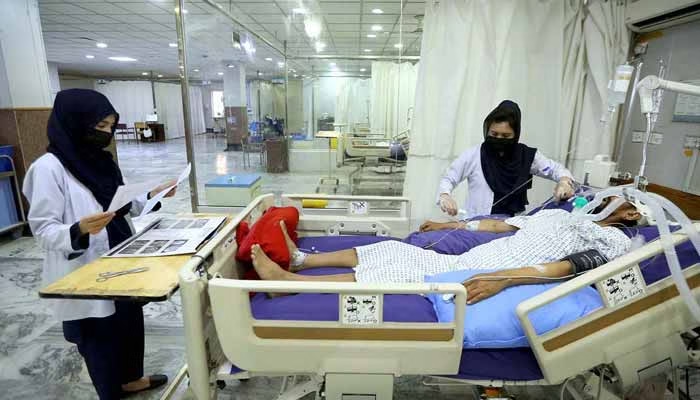The recent surge in dengue cases and larvae across Punjab, including Lahore, has raised significant health concerns. Over the past 24 hours, dengue larvae were discovered in eight new locations within the city, highlighting the escalating threat posed by this mosquito-borne disease. Lahore, in particular, is currently facing a critical situation with over 20,000 identified dengue hotspots throughout the city.
The proliferation of dengue larvae has been accelerating at an alarming rate, which has prompted health authorities to take urgent action. Presently, eight dengue patients are receiving treatment across various hospitals in Lahore. In response to the growing number of cases, a total of 1,044 beds have been designated specifically for dengue patients. Fortunately, the condition of all current patients is reported to be stable and not life-threatening. However, the rising number of dengue hotspots and the rapid spread of larvae signal a potentially worsening situation if not addressed promptly.
Efforts to combat dengue larvae are proving inadequate, with current measures falling short of what is necessary to effectively control the situation. Dengue surveillance and larvicidal activities, which should ideally be ramped up before the onset of the monsoon season, have been insufficient. This shortfall in preventive measures poses a significant risk, as the monsoon rains create ideal breeding conditions for the dengue-carrying mosquitoes, potentially exacerbating the problem.
In response to the escalating situation, Khawaja Imran Nazir, the Provincial Minister for Primary and Secondary Health Care, has announced that dengue surveillance is being intensified across Punjab, including Lahore. The CEO Health of Punjab has been put on high alert to address the critical dengue hotspots in Lahore with focused efforts. Nazir has urged citizens to adhere to dengue Standard Operating Procedures (SOPs) and warned that strict action will be taken against those who fail to comply with these guidelines.
The increase in dengue cases and larvae underscores the urgent need for enhanced public health measures and community engagement. Dengue, transmitted by the Aedes mosquito, thrives in stagnant water, which is often found in improperly managed waste and water storage. Therefore, effective control measures include regular inspection and elimination of potential mosquito breeding sites, public education on preventive practices, and timely medical intervention for those affected by the disease.
The provincial health department’s current strategy includes intensified surveillance to identify and address dengue hotspots promptly. This involves increased monitoring of mosquito breeding sites and implementing larvicidal treatments to curb the growth of mosquito populations. Community involvement is also critical, as public awareness campaigns can help educate residents about preventive measures and encourage active participation in reducing mosquito breeding habitats.
Despite these efforts, the need for a more robust and comprehensive approach remains clear. As the monsoon season approaches, it is essential that both preventive and responsive measures be scaled up to mitigate the risk of a larger outbreak. The current situation serves as a stark reminder of the importance of proactive health management and the need for coordinated efforts between government authorities, health professionals, and the public.
The rising number of dengue cases and larvae in Punjab, especially in Lahore, presents a serious public health challenge. While current medical interventions have managed to stabilize the condition of dengue patients, the effectiveness of preventive measures remains insufficient. The urgent need for enhanced surveillance, community involvement, and comprehensive action to eliminate mosquito breeding sites cannot be overstated. With intensified efforts from health authorities and active participation from citizens, it is possible to manage and eventually reduce the impact of dengue in the region.



